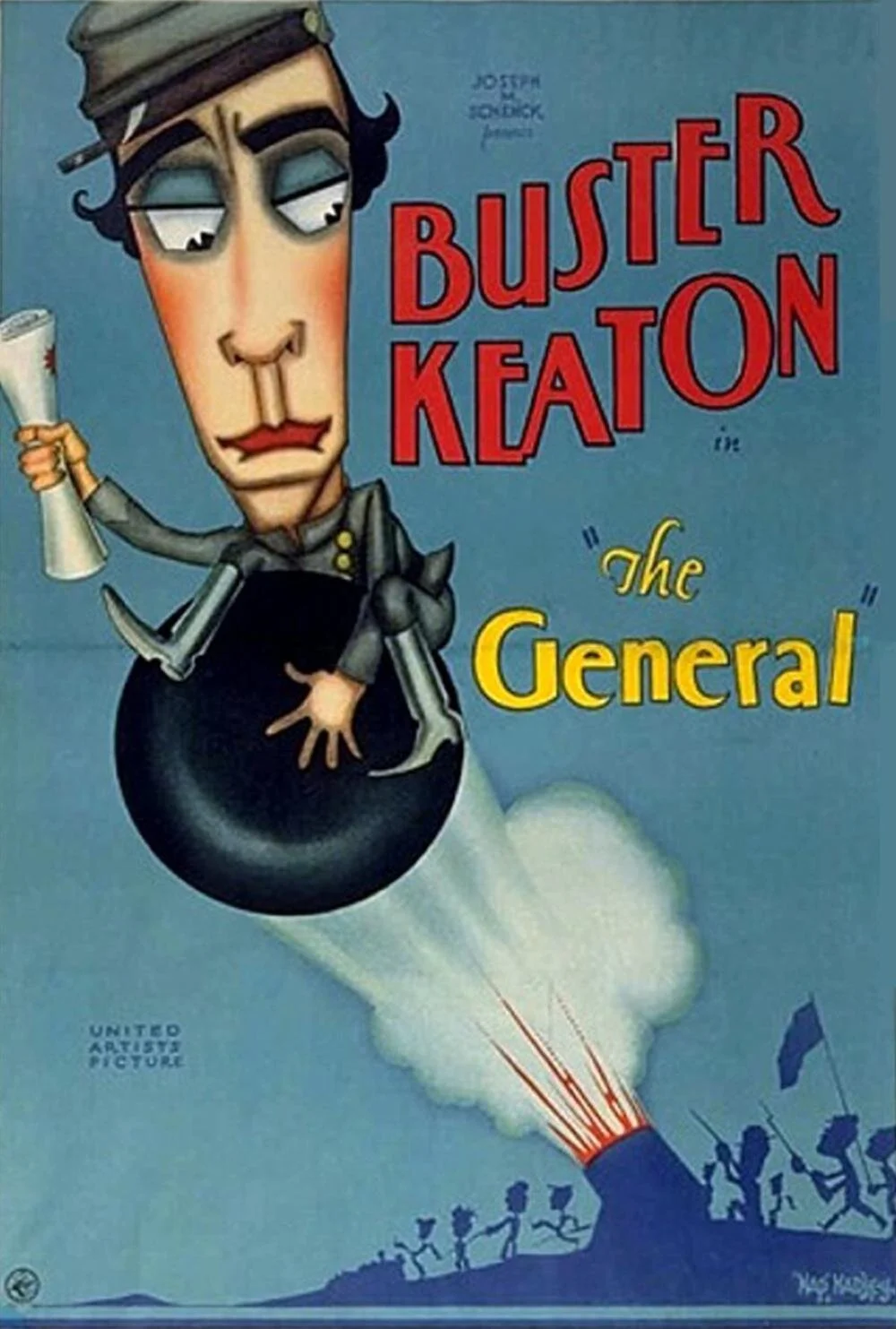The General (1926)
Written by Clyde Bruckman, Buster Keaton, et al.
Directed by Clyde Bruckman & Buster Keaton
1998 List Ranking: NA
2007 List Ranking: 18
Like The Gold Rush before it, The General is my first time seeing a film with another early comedy legend; this time, Buster Keaton is the focus, and while he has a very different style from Charlie Chaplin, I still found him enjoyable to watch, even if he doesn’t quite match Chaplin’s mastery of both the comedic and the tragic.
The film follows Keaton as the engineer of a steam locomotive, The General, who must save the train (and the girl he loves) when soldiers from the Northern Union army steal it (and her) in an attempt to disrupt the availability of provisions to the South during the Civil War. Yes, this is the second “The South Are The Heroes” film on this list, and we’re only four films in. Luckily this film is nowhere near as offensive as The Birth of a Nation, but it’s still uncomfortable when one thinks about it. Hollywood knows the South lost, right?
The Great Stone Face stoically surveys his situation
Let’s talk about Keaton, shall we? I don’t want to compare him and Chaplin TOO much, because their styles are different, but the nature of what they do does beg for at least a LITTLE bit of comparison. Keaton doesn’t give himself much room for pathos here in the film, being solely driven by reacting to whatever is being thrown at him next (sometimes, literally). Where Chaplin gives himself room to breathe and express genuine emotions, Keaton spends the bulk of the film literally climbing all over his train. Keaton is also known as The Great Stone Face, so there isn’t really much room for emotiveness in either direction. I will say that, despite keeping his face still, he still has some great facial expressions (the scene in which he tries to get rid of a cattle car that ends up in front of his engine, only for it to end up right back in front of him is a fantastic example of seeing an actor think and process, and all with an essentially blank face!). Keaton’s comedy isn’t quite my cup of tea, but I still enjoyed it nonetheless.
Keaton performing an incredibly dangerous stunt
The plot of the film is incredibly thin, with it able to be divided into 5 sections: introducing the characters, the first train chase, rescuing the girl, the SECOND train chase, and the battle between the North and South armies. The bulk of the plot is spent on the two train chases, and all the hijinks that ensue during them. The first chase is pretty funny, with lots of fun gags that are, in some cases, pretty intense (Keaton standing on the tracks and ending up on the cowcatcher at the front of the train is a stunt that could have killed him if something went wrong). The second train chase, however, begins to grow wearisome. The gags here become more implausible and start to strain credibility: for example, how does this southern belle, played by Marion Mack, not only know how to stop the train, but then to put it in reverse (at full speed)? This girl has probably never lifted a finger in her life, so how is she able to pull this off? I feel like I’d get in the engine and within five minutes find some way to flip the thing over onto its side.
Keaton and Mack…lovers without a sense of passion
(On the subject of Mack’s Annabelle Lee, how is it that she gets her foot caught in a bear trap, and yet is completely unharmed? I don’t spend a lot of time around bear traps, but I’m led to believe that that they inflict some crazy damage, especially to species that are not bears. I know they’re not going to show her foot getting ripped off (especially in 1926), but still…that was a little bizarre)
The General runs a short-and-sweet 75 minutes (or thereabouts, depending on the version), and with the bulk of that running time devoted to gags aboard the two train chases, there doesn’t leave much room for anything else to talk about. Keaton is pretty funny to watch, and seeing these creative gags left and right, and knowing that they’re the first of their kind, AND that he (like Chaplin) is performing them all himself, is all very impressive. The film lacks heart, though, despite the love story that occasionally feels shoehorned in. It’s a true story (at least, in concept), literally jam-packed with gags, and pulled off by one of early comedy’s greatest masters. It’s not a great film, but it’s a very good one.
FINAL GRADE: B+





